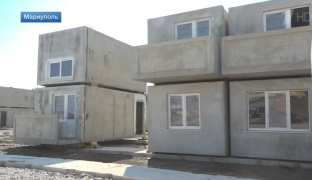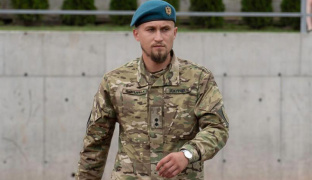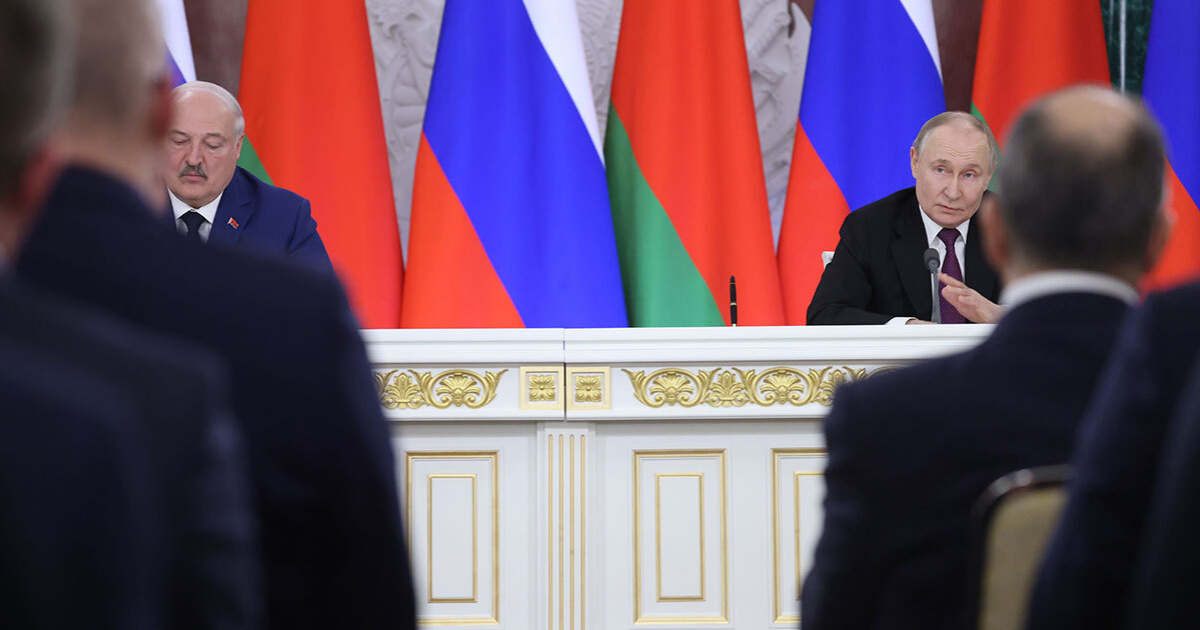Thirty-six deputies, associated with the Donetsk and Luhansk oblasts, will work in the new composition of the Verkhovna Rada, which began its work on August 29. Only seven of them are members of the party in power.
The largest Donetsk-Luhansk faction - 17 people - was made up of representatives of parties formed on the fragments of the Party of Regions: Opposition Platform - For Life and Opposition Bloc. To be true, they cannot be called fraction in the literal sense: OPFL and OB fiercely competed with each other in the election.
Unlike OB, OPFL brought to the Rada mainly people who had already worked in the previous convocations. In addition to them, a number of political long-livers get into the parliament according to the lists of Batkivshchina. These are Mykhailo Volynets, Hryhoriy Nemyria and Serhiy Taruta. One of the sensations of the election held was entrepreneur Yevhen Yakovenko, who was elected to the parliament for the first-time, he got the victory in a single-mandate district in the "blue and white" region (frontline Toretsk).
European Solidarity brought to the VR Artur Herasimov again, who worked and ran earlier in the Donetskoblast. Servant of the People is a series of little-known political newcomers. There are such among the self-nominated winners in single-mandate districts related to the region.
In the wake of the CPU
Sociologist Iryna Bekeshkina, director of the Ilko Kucheriv Democratic Initiatives Foundation, said that the Servant of the People party took away the votes from the former Party of Regions. "They voted for the dream", - Bekeshkina comments on this fact. - They voted for the update. That is, this is to some extent a protest vote. Obviously, everyone has his/her own ideas about the update".
Meanwhile, the Donetsk and Luhansk oblasts, separated by the front line, gave the majority to the former members of the Party of Regions again. Servant of the People was in the second place with 20-30 percent of the vote.
If we summarize the overall result of Opposition Platform - For Life, which won in the Luhansk oblast and turned out to be mainly the third in the local districts of Opposition Bloc, we get the same values as the results of the 2012 parliamentary election - the last pre-war plebiscite in which participated the Party of Regions. The former members of the PR have a total of 10 percent less in the Donetsk oblast.
The difference will not be impressive, if you do not add that in 2012, almost 19 percent in the Donetsk region and more than 25 percent in the Luhansk region (as well as 18-23 percent in other regions of the east and south) got the now banned Communist Party of Ukraine. Like the Party of Regions, the CPU attracted the pro-Russian electorate. The Communist Party has always been a satellite of the big business party in the parliament. They were united by a formal geopolitical orientation towards the Russian Federation.
In other words, the pro-Russian forces lost 25-30 percent of the vote even in the Donetsk and Luhansk oblasts. Having added a cause for alarm to the former members of the Party of Regions, sociologists, who analyzed the results of the national exit polls on June 21, found that, like with the Communist Party, the lion's share of the OPFL and OB voters, 79 percent, - were people over 50 years old.
"The Opposition Bloc and Opposition Platform - For Life parties have certain problems with their political future, because if the party focuses only on older people, the same thing can happen to it as with the Communist Party. The Communist Party had a very high support, but it was supported by the elderly: over time, support declined", - Mykhailo Myshchenko, deputy director of the sociological service of the Razumkov Center, noted at a press conference on the demographic results of the exit polls, answering a question from OstroV's correspondent.
Drown the drowning (by their hands)
On the day of the second round of the presidential election, February 7, 2010, Rinat Akhmetov, the man who brought Viktor Yanukovych to the top of power, joked that he would leave politics "like Alla Pugacheva from the stage". However, former members of the Party of Regions were nervous: the gap between Yanukovych and his main rival Yulia Tymoshenko was only a few percent. And yet, hardly anyone of those who gathered at the press center of presidential candidate Yanukovych, located in the luxurious Intercontinental Hotel in the center of Kyiv, suggested that that election would be the beginning of the end of both the career in politics of the "Leader" and the Party of Regions itself.
After the overthrow of Yanukovych in 2014, the PR disintegrated. The Opposition Bloc party, created by part of the former members of the Party of Regions, was able to create a small faction in the Verkhovna Rada by the results of early election in the autumn of that year. At the end of 2018, the Opposition Bloc collapsed: its leaders were unable to agree on a presidential candidate. A conditional group of the Donetsk industrialists, which Akhmetov personifies, excluded the leaders of conditional gas lobby from the fraction, with whom the Donetsk people have long had tensions.
Yuriy Boyko and Serhiy Lyovochkin, expelled from the OB faction, teamed up, in particular, with Viktor Medvedchuk, close to Russian President Vladimir Putin, and created a new political force - Opposition Platform - For Life. In the 2019 presidential election, OPFL's candidate took fourth place with almost 12 percent of the vote, while OB candidate Yuriy Vilkul gained just a little more than 4 percent.
On the day of early parliamentary election, July 21, 2019, Opposition Bloc, which did not overcome the passing barrier, did not even open its own press center. Its representatives made no statement neither that day, nor later. The speakers in the press center of Opposition Platform - For Life, which polls promised second place after the presidential Servant of the People, spoke rather nervously on July 21. Two parties with the same roots and electoral platform were clearly crowded in the narrow framework of the southeast.
Nestor Shufrych, former deputy from the Party of Regions and Opposition Bloc, announced a high turnout in the traditionally politically active west of the country. In the east, voters turned out to be even more passive than the already non-optimistic party forecasts had anticipated. This meant more than just numbers for OPFL.
In addition, the speakers of Opposition Platform - For Life stated attempts by opponents to falsify election results in the Donetsk oblast. Echoing the threats as a mantra, OPFL promised the falsifiers all possible articles of the criminal code.
It was in the Donetsk oblast where the most desperate struggle took place between what remained of Opposition Bloc and OPFL, aggressively advancing in its positions. Candidates for deputies of the Verkhovna Rada from the Opposition Platform - For Life made it clear to the public that they considered the people of OB to be authors of the falsifications.
"I am talking about the Opposition Bloc not as competitors, I am talking about them as petty pests that are used by the past authorities to prevent the real opposition", - ranted Yuriy Pavlenko, who began his political career in the early 2000s as the nearest ally of the future "pro-Western" president Viktor Yushchenko, and officially joined the former members of the PR in 2014.
It was noteworthy that, naming a number of oblasts of the east and south, where, according to them, there were also attempts of falsification, the OPFL speakers did not mention the Luhansk region. To the clarifying question of OstroV, Pavlenko and his associate Oleksandr Puzanov noted that there were no "systemic violations" in the Luhansk region - oblast where their bloc ultimately got the best results. Insiders, however, explained off the record that OPFL concluded a kind of support pact with the "past power" in this region in the person of the local princelet, deputy from the bloc of ex-president Petro Poroshenko Serhiy Shakhov.
"Shakhov has an agreement with Vadym Rabinovich (one of the leaders of OPFL - OstroV) for support. It is obvious. For example, at first, OPFL nominated Volodymyr Struk as its candidate in constituency 113. After the agreement between Shakhov and Rabinovich, member of the Shakhov's team Oleksandr Lukashev went for the election from OPFL. No one from Shakhov competed with Serhiy Medvedchuk in constituency 105. This agreement also manifested itself in agitation", - one of the participants in the electoral process in the Luhansk oblast, who was not authorized to speak in public, explained to OstroV.
As a result, it was in the Luhansk oblast where Opposition Platform - For Life received its highest result in Ukraine. Opposition Bloc got the victory of candidates elected by the first-past-the-post system and the result of 15-20 percent only in several districts of the two oblasts, where the large enterprises of Metinvest and DTEK of oligarch Rinat Akhmetov, main "sponsor" of OB, are located.
Opposition Bloc managed to conquer only five single-mandate districts in four settlements of two oblasts: Mariupol (two districts), Avdiivka, Shchastya and Dobropillia/Pokrovske. That is, where city-forming enterprises that belong to Rinat Akhmetov work.
Of the five "Akhmetov's" deputies, the oldest resident in the Rada was only Vadym Novynskyi, who showed himself in the last convocation primarily by caring for the Ukrainian Orthodox Church (MP), Russian language and controversial issues of Ukrainian history.
In addition to Novynskyi, mayor of Pokrovsk, former member of the PR Ruslan Trebushkin, who literally snatched the victory from his colleague from Dobropillia, also former member of the PR, Andriy Aksyonov, entered the parliament from OB. The rest are Victoria Hryb, who worked for several years in DTEK in the same Dobropillia and surpassed brother of Viktor Medvedchuk Serhiy, top manager of MMK named after Ilyich Serhiy Mahera and director of the Avdiivka Coke and Chemical Plant Musa Mahomedov.
The latter, who almost did not leave the frontline Avdiivka from the beginning of hostilities, for a long time actually replaced the local authorities who had left the city.
The odious Yuriy Boyko, Renat Kuzmin, Natalia Korolevska, as well as her husband Yuriy Solod, will once again represent (conditionally) the interests of the region in the OPFL faction in the new parliament. Of the ex-members of the PR known to the general public, Yuliy Ioffe and Serhiy Dunayev are reincarnated in the new Rada.
Serhiy Larin will also remain in the parliament, who almost did not speak in the conference hall in the last convocation, did not show special worries about the eastern territories and, like almost all his colleagues from the former PR, who participated in the legislative process exclusively as a co-author of bills (unlike many of other ex-members of the PR, only Korolevska and Solod usually filed bills). Almost all of these documents from the opposition looked more like political declarations or appeals than genuine draft regulations with the prospect of adoption.
Head of the civil-military administration of the Marinka district Volodymyr Moroz and mayor of Druzhkivka Valeriy Hnatenko, hero of one of the high-profile articles of OstroV, will also replace the seats in the local government by seats in the parliament thanks to OPFL.
In addition, the not well-known Vitaliy Bort, Fedir Khrystenko and Oleksandr Lukashev will enter the pro-Russian bloc faction. The first one was elected to the Rada as a candidate from the Party of Regions three times since 2006, but he was not remembered by any political or legislative activity. The second has so far publicly announced himself only as the organizer of a gorgeous celebration for his wife on her birthday and an attempt to repeat this success in the district in Bakhmut. The third is Serhiy Shakhov's man, as mentioned above.
Anastasia Prokopenko and Oleksiy Kormiletsky, coordinators of the All-Ukrainian Civil Network Opora told OstroV in the Donetsk and Luhansk oblasts respectively that the statements of the representatives of OPFL about attempts of falsification were verified and not confirmed. For example, as Prokopenko noted, the ballots allegedly thrown in the interests of OPFL opponents at one of the polling stations in the Donetsk oblast turned out to be "some papers that have nothing to do with the election process".
Vakarchuk's camp
"Well, that is enough", - Iryna Bekeshkina commands from the screen. The crowd surrounding Svyatoslav Vakarchuk laughs in response. No one was listening to what happened before on the screen. The full hall of the Voice press center roared and exploded with applause when the sociologists announced the fifth and final political force that overcame the entry barrier.
In the last weeks before the election, Voice teetered on the verge of passing to the Verkhovna Rada. Bekeshkina's words from the screen sounded in the press center of Vakarchuk as a prophecy of the sacred oracle, foreshadowing the fate of his hastily created party. In response to her "enough", addressed to her sociological colleagues, who could continue to read out the list of political forces with less than a percent of votes, Vakarchuk's supporters recovered from euphoria and parted with a laugh to finally let their leader onto the stage.
A week before, the voice of the Lviv resident Vakarchuk was trembling with excitement when he called a briefing to announce the competitors' attempts to undermine the already modest rating of his party. In the west of Ukraine, where it was the most popular, voters began, in particular, to receive SMS calling not to vote for the party of Vakarchuk, who does not overcome the passing barrier, but to choose another "pro-European" political force.
As it turned out later, the SMS-mailing was organized by one of the representatives of European Solidarity of Petro Poroshenko in the Lviv oblast. The Lviv oblast, however, became the only region in Ukraine where Voice, registered only in May, won the first place according to the July 21 election results.
Now Vakarchuk, who was expected to be president before Zelensky's nomination and who planned at least 13 percent of the country's votes for his party, still celebrated the victory, joked confidently and promised that he would "seriously and permanently" be in politics, comparing the result of Voice with climb to Everest. "We climbed to the base camp, firmly entrenched in it and are going to move on", - Vakarchuk said in his speech at the press center.
The victory of Voice in the Lviv oblast and Opposition Platform - For Life in the Luhansk and Donetsk showed that, one way or another, the country still retained the "pro-Western" and "pro-Russian" poles. The probability of a complete loss pushed Vakarchuk clearly to the right. On that day, when the leader of Voice excitedly reported the attempts to rob him of voters in western Ukraine, he also announced his team's initiative to impose criminal penalties for "separative negotiations with the aggressor country".
The initiative was a reaction to the regular trip of the leaders of Opposition Platform - For Life to Moscow to meet with Russian top officials. Presidential candidate from OPFL Yuriy Boyko had a similar meeting before the presidential election in the spring of this year. It was clear that the top leadership of the Russian Federation was participating in the election campaigns of its Ukrainian allies.
But Svyatoslav Vakarchuk hardly worried about this. It was definitely about measures that should have been approved by his voters in the most anti-Russian regions of the country.
Voice obviously did not pretend to voters in the east and south. This political force did not nominate a single candidate in single-mandate districts in the Donetsk and Luhansk oblasts. Similarly, Opposition Platform - For Life did not actually campaign in the west of the country, analysts of the Opora Civil Network stated. Not one deputy from Voice was related to the east of the country.
However, the difference between Voice and former members of the PR from Opposition Platform - For Life and Opposition Bloc was not only in that. As sociologists noted, the votes of the youngest and most educated voters fell on the party of Vakarchuk.
The opposite of his political forces in the east was not the heavyweights from OPFL and OB, but the same newly created Party of Shariy, popular pro-Russian YouTube blogger. Anatoly Shariy did not overcome the entry barrier, however, his party gained three percent - enough to receive the state funding. In the east and south, including in the Donetsk and Luhansk oblasts, the party of Shariy received up to 8 percent in some districts, coming to the third place. Sociologists stated that about a half of its voters were students.
Basically, the Ukrainian youth voted for Servant of the People.
New story
Fighting corruption, decentralization, energy reforms, e-government. One panel of experts is being replaced by another on the stage in the press center of the Servant of the People presidential party. The entire election day is filled with speeches: candidates for the presidential party post their action plans as members of the Verkhovna Rada. There is no question of whether they will enter the parliament: according to surveys, Servant of the People pass to the VR about 120 people only on the party list.
On the evening of June 21, discussing the composition of the future parliamentary coalition and inviting Svyatoslav Vakarchuk to negotiations, the leaders of Servant of the People did not yet know that the majority voting would give 130 people to Volodymyr Zelensky and that for the first time in the history of independent Ukraine, the head of state would have a one-party majority in the parliament.
According to the election results, Servant of the People received 254 mandates out of 424, having won in 21 of 24 regions of Ukraine according to the lists. Little known even in their small homeland, not clear where they came from and completely different candidates elected by the first-past-the-post system snatched the victory from seasoned politicians and oligarchs under the brand name of SP.
The 106th district in the Luhansk region was the only one where the double extension technology worked, Oleksiy Kormiletsky from Opora says. In Severodonetsk, local government of which has been paralyzed since 2015 by Serhiy Shakhov's struggle with local ex-members of the PR, Yuriy Furman, member of Shakhov's team, passed the candidate of Servant of the People to the first place. Entrepreneur Oleksiy Kuznetsov has thus become the sole candidate elected by the first-past-the-post system winner from SP in the region. Furman lagged behind Kuznetsov by 1002 votes, while write-in candidate Andriy Furman got 1622 votes.
In addition to Kuznetsov, six more candidates for deputies from the presidential party, one way or another connected with the region, passed to the Rada. These are, in particular, teachers of the universities moved from Donetsk, Ella Repina (assistant professor of the Department of Marketing and Commercial Affairs of the DonNUET named after Tugan-Baranovsky) and Yulia Ovchinnikova (acting dean of the Faculty of Biology of DonNU in Vinnytsia), urbanist from Mariupol Dmytro Hurin, living in Kyiv, businessman from the sphere of show business Maksym Tkachenko, businessman, in the past - deputy of the Luhansk City Council from the PR Ruslan Horbenko, as well as Marharyta Shol, who was a consigliere of presidential candidate Volodymyr Zelensky in Mariupol.
the Ukrainian media tagged Shol socialite for some reason while, in addition to these allegations, there is almost no information about her on the Web. According to the declaration of the future 31-year-old deputy with an economic education, she owns only an apartment of 40 "squares" in Mariupol, where her mother and son are also registered. For the year, Shol declared $1090 of salary in a local private enterprise.
From the life of self-nominees
"I have not paid a single penny to voters, but I am writing an explanatory letter to the police for the third time", - laughs Volodymyr Veselkin, head of the civil-military administration of the front-line village of Zaitseve, Donetsk oblast. "Write-in candidates filed complaints on me - probably to challenge the results if I win".
In the district with only three thousand registered voters, Veselkin, who had business in Horlivka, of which Zaitseve was a part, got the second place with 124 votes. He was ahead of the former Makiivka resident, head of the organization of Afghans "Nobody but us" Oleksandr Kovaliov, for whom 220 people voted. This is an anti-record of past election. The head of the civil-military administration says that only about a thousand people actually live in Zaitseve.
Kovalev is a self-nominated candidate like Veselkin, he had no contacts with Zaitseve before the election and actually bought himself these 220 votes, gifting and entertaining local residents. Today, after the election, he continues his activities, arranging sweet buffet for Zaitseve's kids, repairing roofs and bringing some kind of humanitarian aid to the village. In other words, doing everything that all kinds of humanitarian organizations have been doing in front-line settlements since 2014, in fact, corrupting the local population with endless handouts.
Oleksandr Kovaliov became one of the six self-nominees who won the election, associated with the Donetsk or Luhansk oblasts. In addition to him, deputies of the previous convocation Dmytro Lubinets from Volnovakha and Maksym Yefimov from Kramatorsk passed to the Rada in the Donetsk oblast: both were in the Petro Poroshenko Bloc. The legislative work of both deputies previously had little to do with the region: the names of Yefimov and Lubinets are listed only in extensive lists of co-authors in bills, formally aimed at solving the problems of two regions suffering from war.
The picture with self-nominated people in the Luhansk region is much simpler. Two of them, Oleksandr Sukhov and Serhiy Velozmozhny, are members of Shakhov's team. The third is Shakhov himself, former MP from the PPB in the parliament of the previous convocation.
Serhii Shakhov also filed bills related to the region, mainly co-authored. His only personal noticeable initiative is an attempt to achieve early local election in Sievierodonetsk.
At the start
It is difficult today to say for sure whom of the people's deputies the Luhansk and Donetsk regions will be able to rely on in solving their problems and lobbying for their interests.
Natalia Veselova, who was an "ambulance" for volunteers and activists working in the region and for the region for five years, reacted quickly to complaints and responded to constructive initiatives for the new parliament, did not pass in the new parliament.
The Rada will also not have Mustafa Nayyem, who was not connected with the region, but delved into its problems and collaborated with non-governmental organizations.
Only Hryhoriy Nemyria remains of the unambiguously responsive in terms of cooperation with NGOs. The rest are either banal businessmen or dark horses.
Until the new parliament began to work and new government was formed, the initiative comes from the office of the president, and so far, it has been quite sustainable.
Perhaps this will continue to be so, but in the conditions of a one-party majority, this has both advantages and risks. Absolute power corrupts absolutely, and war, as the experience of past power confirms, is a colossal opportunity for enrichment.
Poroshenko's administration could not resist the temptation. Will Zelensky's office stand?
Yulia Abibok, OstroV




